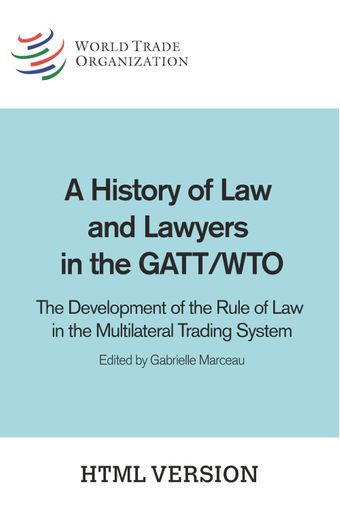GATT dispute settlement practices

- De: Rosine M. Plank-Brumback
- Source: A History of Law and Lawyers in the GATT/WTO , pp 13-13
- Publication Date: enero 2015
- DOI: https://doi.org/10.30875/bf0aa409-en
- Idioma: Inglés
My first encounter with the dispute settlement system of the General Agreement on Tariffs and Trade (GATT) took place as a member of the US delegation, which litigated the complaint against the then European Economic Community (EEC) on its import controls on certain processed fruits and vegetables. The United States requested a GATT panel to examine whether the EEC system was ‘consistent with the obligations of the EEC under the General Agreement’. Part of the EEC legal defence relied on exemptions under Article XI:2(c)(i) and (ii) of the GATT from Article XI:1’s general prohibition against non-tariff restrictions. The exemptions allowed for restrictions on agricultural imports necessary to enforce governmental measures that restricted the marketing or production of like domestic products, or that operated to remove a temporary surplus of ‘like’ domestic products. I sifted through EEC agricultural statistics to show that market withdrawals of fresh tomatoes had counted for less than 1 per cent of domestic production, and could therefore not be considered as a restriction on domestic quantities justifying a minimum import price and surety system on imported tomato concentrates.
-
From This Site
/content/books/9789287046598s009-c017dcterms_subject,pub_countryId-contentType:WorkingPaperSeries -contentType:Periodical -contentType:BookSeries -contentType:ReportSeries105


